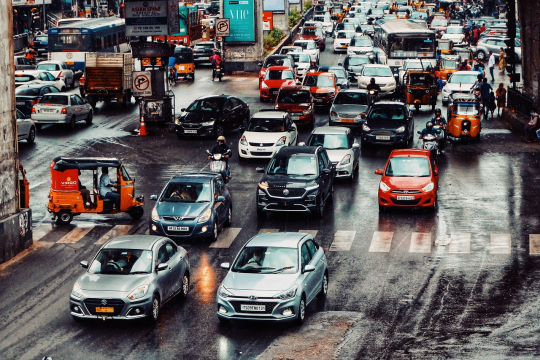Nearly 5000 deaths per year in Delhi can be attributed to traffic congestion. Increased traffic congestion worsens air quality. The worsening is greater when congestion is already at a high level. A congestion charge on large private vehicles can offer large benefits with minimal disruption to the existing status quo.
Abstract
Will reducing traffic congestion bring health benefits? We use high-frequency data from Uber for Delhi – a city that experiences high levels of air pollution and traffic congestion - to answer this question. Exploiting information by the time of day for every day of 2018 at the neighborhood level that covers over 16000 possible trips during each of these time periods, we employ an econometric framework that models wind direction together with day, month, time-of-day and trip fixed effects to remove important sources of unobserved heterogeneity. Congestion has a non-linear, dynamic impact on pollution raising it sharply by over a standard deviation. The pattern of response shown by the results is consistent with known information regarding vehicular emissions and ambient air pollution, suggesting bias in the estimates to be low. Simulations using parameters from epidemiological studies suggest congestion may be responsible for up to 40% of all premature deaths from pulmonary and heart disease in Delhi.


